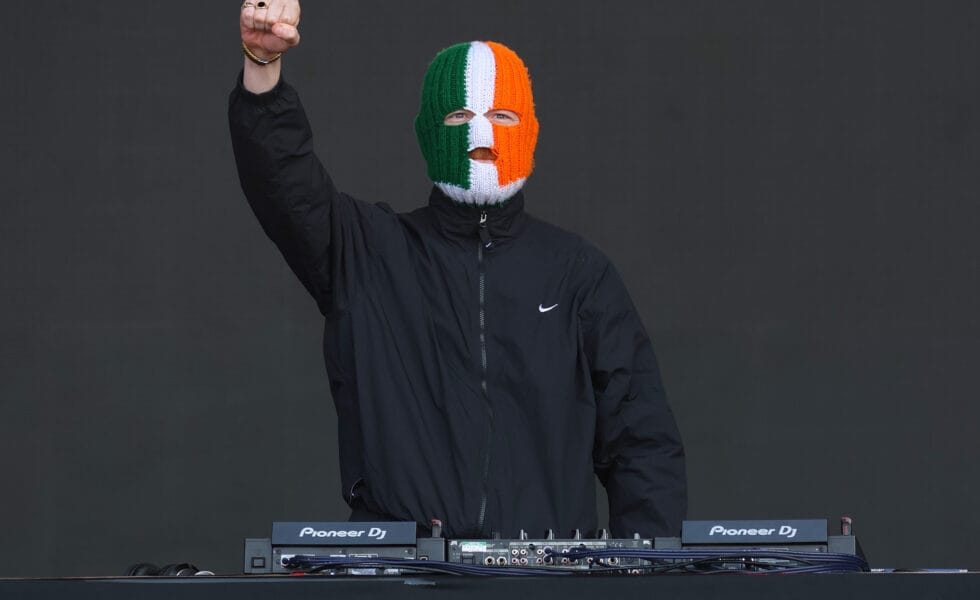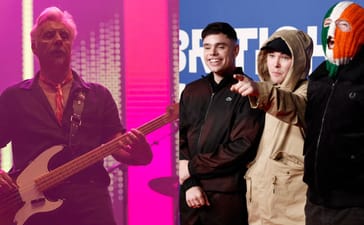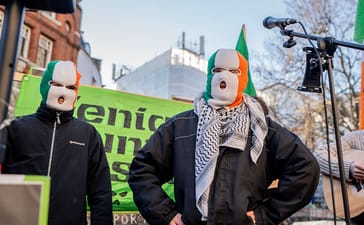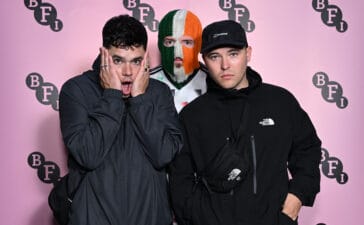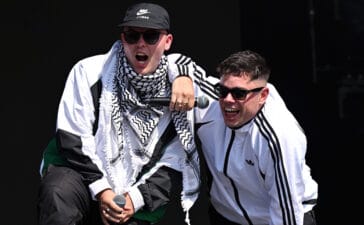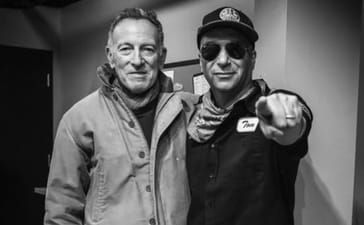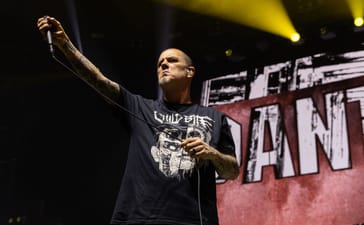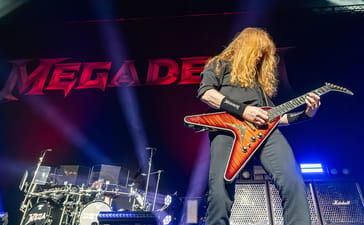Billy Bragg has doubled down on his support for Kneecap, calling the recent terror charge against member Mo Chara “a disturbing example of creative expression being put on trial.”
The case centres around footage from last year where Mo Chara allegedly displayed a Hezbollah flag — something Kneecap say was taken out of context, insisting they don’t support any terrorist group or condone violence. But that hasn’t stopped the Met Police from pushing forward with a terrorism charge, a move Bragg now describes as an attack not just on the band, but on the freedom of artists more broadly.
“I do not believe that creative expression should be subject to criminal charges,” Bragg said in a lengthy statement. “It’s a classic ‘gotcha’, a single instance of transgressive speech taken out of context and put before a jury to secure a conviction.”
Bragg’s not just defending Kneecap for the sake of it either. He’s connecting this prosecution to a wider trend — one where lyrics, videos, even music tastes, are being used as evidence in courtrooms, disproportionately targeting young Black men and working-class artists. “Since 2005, over 100 cases have used lyrics and music as key evidence,” he said. “It’s a method rooted in bias, not justice.”
The veteran musician stopped short of signing the earlier artist letter supporting Kneecap, citing issues with its wording, but made it clear: “My problem wasn’t the message, it was the framing. I stand with their right to speak, to provoke, to challenge.”
Bragg also highlighted the Art Not Evidence campaign — an initiative pushing to end the use of music as criminal evidence — and urged artists, lawyers, and fans to push back against what he sees as a “dangerous misuse of the legal system to suppress dissent.”
In a time where dissent is being policed more literally than ever, Kneecap aren’t just a band under fire — they’re the latest test case for what it means to speak truth in art, and pay the price.


